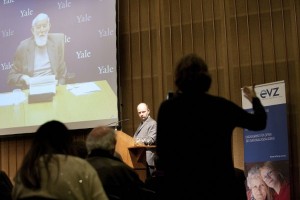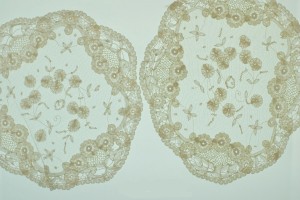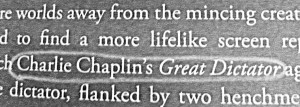How our culture of remembrance is changing in view of a disappearing generation of contemporary witnesses to World War II was the subject of a conference called “Preserving Survivors´ Memories – Digital Testimony Collections about Nazi Persecution” at the Haus der Kulturen der Welt in Berlin from 20 to 22 November 2012.

Geoffrey Hartman per video connection © Birgit Meißner, EVZ
The conference was kicked off by Yale University comparative literature professor (emeritus) and Holocaust studies pioneer, Geoffrey Hartman. Born in Frankfurt in 1929, Hartman emigrated to England in 1939 as part of the refugee children’s movement. Together with his wife Renée, a survivor of the Bergen-Belsen concentration camp, he became involved in the founding of the Fortunoff Archive, which has recorded video interviews with Holocaust survivors since the 1970s. He views these video interviews as constituting a genre of their own, whose greatest significance comes from allowing survivors to speak for themselves. → continue reading

Two doilies from the Plesch family household, from the first half of the 20th century, given by Janos and Melanie Plesch in memory of Prof. Dr. Peter H. Plesch.
You can often find a number of Jewish Museum employees in the lunchtime crowd at the canteen of the European Patent Office at Hallesches Tor in Berlin. The food there is excellent; the noise, on the other hand, is excessive: rattling silverware, clattering dishes, and the voices of diners whirring together into one great drone.
In the dining room of the Berliner doctor family Plesch such a hubbub would have been unthinkable. Their secret: clatter-doilies. → continue reading
January will mark the 80th anniversary of the National Socialists’ seizure of power, and popular interest in the history of the era that followed is as vivid as ever:  34-year-old Laurent Binet’s HHhH, winner of the prestigious Goncourt prize, reconstructs Operation Anthropoid, the skewed but ultimately successful mission of Czech resistance fighters to assassinate Reinhard Heydrich, National Socialist Obergruppenführer, Protector of Bohemia and Moravia, and head of the German secret services. (HHhH is an acronym for “Himmlers Hirn heißt Heydrich,” – Himmler’s brain is Heydrich – which is how Heydrich’s function was described in Nazi circles.) → continue reading
34-year-old Laurent Binet’s HHhH, winner of the prestigious Goncourt prize, reconstructs Operation Anthropoid, the skewed but ultimately successful mission of Czech resistance fighters to assassinate Reinhard Heydrich, National Socialist Obergruppenführer, Protector of Bohemia and Moravia, and head of the German secret services. (HHhH is an acronym for “Himmlers Hirn heißt Heydrich,” – Himmler’s brain is Heydrich – which is how Heydrich’s function was described in Nazi circles.) → continue reading


